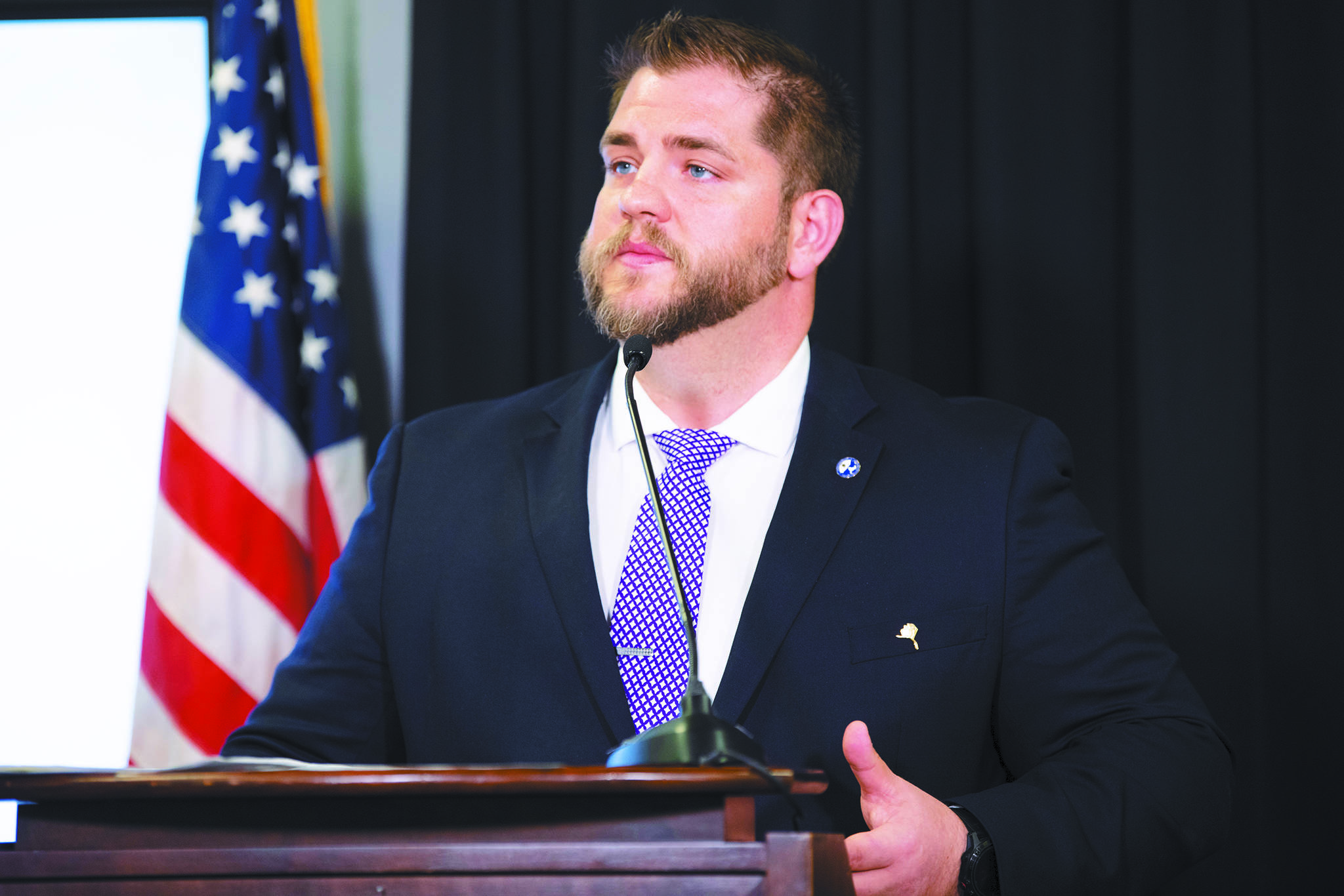A new health mandate providing a quarantine space for health care workers and homeless families who test positive for COVID-19 was announced by Gov. Mike Dunleavy and Department of Health and Social Services Commissioner Adam Crum Monday night. The state’s chief medical officer, Dr. Anne Zink, also announced five new positive cases of COVID-19, in Anchorage and Juneau, bringing the state’s total number of confirmed cases to 277.
One new hospitalization was announced Monday, bringing the state’s cumulative total number of hospitalizations to 32. There were no new deaths announced Monday. The eighth Alaskan to die from complications with COVID-19 was a 73-year-old Fairbanks woman, Foundation Health Partners, the organization that runs Fairbanks Memorial Hospital, announced Friday.
As of Monday night, the state had reported 85 recoveries.
The new positive case in Juneau is a staff member working at Lemon Creek Correctional Center. The individual is among four employees from the center to test positive for COVID-19, a Monday release from the City and Borough of Juneau said.
There are no known cases among inmates, a Monday release from the DHSS said.
The state issued a new health mandate Monday, which will implement a temporary quarantine and isolation program for homeless families and first responders and health care workers who need to isolate from their families. The mandate will remain in effect until further notice.
The order states that the program will use “non-congregate shelter solutions,” including hotels, college and university dormitories and “properly modified non-traditional structures” to house people.
The housing will be dedicated to first responders and health care workers who need to quarantine safely and limit exposure to their families, and homeless families who have at least one member who has tested positive for COVID-19, as well as any other homeless individuals “who require quarantine or isolation,” the mandate said.
Dunleavy said he will spend time this week discussing what indicators the state is looking for to determine when to start opening up certain sectors of the economy in certain areas. Dunleavy said some communities will be able to “move quicker than others.”
“It’s our goal to get our life back, our economy back, as soon as possible,” Dunleavy said. “… If we can keep flattening the curve, it is going to help us in reopening the economy sooner than later.”
He said next week, the state will begin discussions with communities and industries to determine when some sectors of the economy can be reopened and where. He said after each sector is opened the state will watch the number of cases coming in every day, in hopes to avoid a spike in positive cases. He said if for some reason a sector of the economy is reopened followed by a spike in cases, the state can trace those cases back and reevaluate. Dunleavy said that the state will not put the economy above health priorities and said that the “health of Alaskans comes first and foremost.”
Zink said Alaska has broader testing requirements than other states. Newer testing criteria says Alaskans can get tested if they have a cough, shortness of breath or difficulty breathing; accompanied by any two symptoms, including chills, diminished sense of smell or taste, fatigue, fever, headache, muscle/joint aches, runny nose, rigors, nausea, sore throat and sputum.
Some factors might impact a test’s result, including the viral load an individual is carrying or the way the specimen sample is stored. Zink said Alaskans who are tested, and receive a negative for COVID-19, are monitored.
She said most patients see their conditions improve and recover. But in cases that worsen, the state would encourage retesting those people — especially if the patient was a health care worker or an older person.
When it comes to serology and antibody testing, Zink said the state is hoping to hear guidance next week from the U.S. Centers for Disease Control and Prevention on those testing possibilities.
The health department also launched a series of surveys Monday that the state wants Alaska families to participate in to better understand how the global pandemic is affecting their households. Survey responses will be used to improve programs serving families, a Monday release from the DHSS said.
“We hope the results from this survey will give us data to better understand how COVID-19 is affecting the physical health, mental health and education of children in Alaska and their families,” Becky Morisse, maternal child health director for Alaska, said in the release. “We will use the findings of the survey to improve our services for families during this challenging time.”
Alaskans who want to respond to the survey can text “AKFAMILY” to 907-269-0344 or access the surveys at the MCH Epidemiology Unit website at dhss.alaska.gov/dph/wcfh/Pages/mchepi/.
The first survey will be open for several weeks, and initial results will be summarized and shared by the unit before the end of April, the release said. The unit is asking Alaskans to sign up to receive additional short follow-up surveys on focused topics, including the impact on education, physical and mental health of children in Alaska.
The survey is being coordinated by the Maternal Child Health (MCH) Epidemiology Unit in the Section of Women’s, Children’s and Family Health.
There are 277 confirmed cases for COVID-19 in Alaska. On the Kenai Peninsula, there are a total of 15 cases: Anchor Point (1), Homer (2), Kenai (3), Seward (3), Soldotna (4) and Sterling (2). One of those 15 cases is a Homer resident who was tested and treated in Anchorage, and one of those 15 cases is an Anchor Point resident who died out of state.
The state is reporting 131 confirmed cases in Anchorage, 79 cases in Fairbanks, one case in Delta Junction, one case in the Yukon-Koyukuk region, 14 cases in the Matanuska Susitna Borough, 17 cases in Juneau, 15 cases in Ketchikan, two cases in Petersburg, one case in Craig and one case in Bethel.

